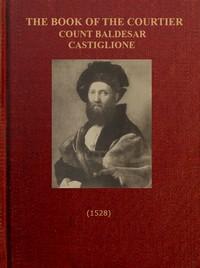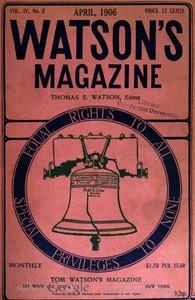|
|
Read this ebook for free! No credit card needed, absolutely nothing to pay.Words: 135390 in 66 pages
This is an ebook sharing website. You can read the uploaded ebooks for free here. No credit cards needed, nothing to pay. If you want to own a digital copy of the ebook, or want to read offline with your favorite ebook-reader, then you can choose to buy and download the ebook.

: The Book of the Courtier by Castiglione Baldassarre Conte Opdycke Leonard Eckstein Translator - Courtesy Early works to 1800; Courts and courtiers Early works to 1800@FreeBooksThu 08 Jun, 2023 had hanged herself on a fig-tree, another man approached him and plucking him by the robe, said: 'Brother, might I as a great favour have a small branch of that fig-tree to graft upon some tree in my garden?' "Some other witticisms need an air of patience and are slowly uttered with a certain gravity. As where a rustic, who was carrying a box on his shoulders, jostled it against Cato, and then said: 'Have a care.' Cato replied: 'Hast thou aught else but that chest upon thy shoulders?' "Moreover we laugh when a man has made a blunder, and to mend it says something of set purpose that seems silly and yet tends to the object he has in view, and thus keeps himself in countenance. For instance, in the Florentine Council not long ago there were two enemies, and one of them, who was of the Altoviti family, fell asleep. And although his adversary, who was of the Alamanni family, was not speaking and had not spoken, yet to raise a laugh the man who sat next Altoviti woke him with a touch of the elbow, and said: 'Do you not hear what So and So says? Make answer, as the Signors are asking for your opinion.' Thereupon Altoviti rose to his feet all drowsy as he was, and said without stopping to think: 'My Lords, I say just the opposite of what Alamanni said.' Alamanni replied: 'But I said nothing.' 'Then,' said Altoviti at once, 'the opposite of whatever you may say.' "Of this kind also was what your Urbino physician, master Serafino, said to a rustic, who had received a hard blow in the eye so that it was forced quite out, yet decided to seek aid from master Serafino. On seeing him, although aware that it was impossible to cure him, still in order to force money from his hands , the doctor readily promised to cure him, and accordingly demanded money from him every day, affirming that he would begin to recover his sight within five or six days. The poor rustic gave what little he had; then, seeing that the affair was progressing slowly, he began to complain of the physician, and to say that he felt no benefit at all and saw no more with that eye than as if he had it not in his head. At last master Serafino, seeing that he would be able to extort little more from the man, said: 'Brother, you must have patience. You have lost your eye and there is no longer any help for it; and may God grant that you do not lose your other eye as well.' On hearing this, the rustic began to weep and complain loudly, and said: 'Master, you have ruined me and stolen my money. I will complain to my lord Duke;' and he made the greatest outcry in the world. Then, to clear himself, master Serafino said angrily: 'Ah, wretched traitor! So you would have two eyes, as city-folk and rich men have? To perdition with you!' and accompanied these words with such fury that the poor rustic was frightened into silence and quietly went his way in peace, believing himself to be in the wrong. "Another time Rafaello de' Pazzi saw a letter which the Prior of Messina had written to a lady of his acquaintance, the superscription of which read, 'This missive is to be delivered to the author of my woes.' 'Methinks,' said Rafaello, 'this letter is intended for Paolo Tolosa.' Imagine how the bystanders laughed, when everyone knew that Paolo Tolosa had lent the Prior ten thousand ducats, and that he, being a great spendthrift, found no means to repay them. "Akin to this is the giving of friendly admonition in the form of advice, yet covertly. As Cosimo de' Medici did to one of his friends, who was very rich but of moderate education and who had secured through Cosimo a mission away from Florence. When on setting out the man asked Cosimo what course he thought ought to be taken in order to do well in the mission, Cosimo replied: 'Wear rose-colour, and say little.' Of the same kind was what Count Ludovico said to a man who wished to travel incognito through a certain dangerous place and knew not how to disguise himself; and being asked about it, the count replied: 'Dress like a doctor or some other man of sense.' Again, Gianotto de' Pazzi said to someone who wished to make a jerkin of as varied colours as he could find: 'Imitate the Cardinal of Pavia in word and deed.' "And we laugh at certain other things that seem to have sequence. As recently, when a friend of ours was suspected of having had the renunciation of a benefice forged, upon another priest's falling sick, Antonio Torello said to our friend: 'Why do you delay to send for that notary of yours and see about filching this other benefice?' Likewise at some things that have no sequence. As the other day, when the pope sent for messer Gianluca da Pontremolo and messer Domenico dalla Porta , and made them auditors, saying that he wished to set the Wheel right,--messer Latino Giovenale said: 'His Holiness is in errour if he thinks to make the Wheel right with two wrongs .' "Moreover it is a fine thing to use metaphors seasonably in such cases. As when our friend master Marcantonio said to Bottone da Cesena, who was goading him with words: 'Bottone, Bottone, you will one day be the button , and your button-hole will be the halter.' Another time, master Marcantonio having composed a very long comedy in several acts, this same Bottone said to master Marcantonio: 'To play your comedy, all the timber there is in Slavonia will be needed for the setting.' Master Marcantonio replied: 'While for the setting of your tragedy, three sticks will be quite enough.' "Nor is there less laughter when we reply to something that our interlocutor has not said, or pretend to believe he has done something that he has not but ought to have done. As when Andrea Coscia, having gone to visit a gentleman who rudely kept his seat and left his guest to stand, said: 'Since your Lordship commands me, I will sit down to obey you;' and so sat down. Reduced from the central part of Braun's photograph of the triple portrait, in the Pitti Gallery at Florence, painted between 1517 and 1519 by Raphael with the assistance of his pupil Giulio Pippi, better known as Giulio Romano, . "Again, a priest at Milan having died, Biagino Crivello begged his benefice of the Duke, who however was minded to give it to someone else. At last Biagino saw that further argument was of no avail, and said: 'What! After I have had the priest killed, why will you not give me his benefice?' "It is often amusing also to express desire for those things that cannot be. As the other day, when one of our friends saw all these gentlemen playing at fence while he was lying on his bed, and said: 'Ah, how glad I should be if this too were a fitting exercise for a strong man and a good soldier!' Free books android app tbrJar TBR JAR Read Free books online gutenberg More posts by @FreeBooks
: Watson's Magazine Vol. IV No. 2 April 1906 by Various Watson Thomas E Thomas Edward Editor - United States Politics and government Periodicals@FreeBooksThu 08 Jun, 2023

: Watson's Magazine Vol. IV No. 1 March 1906 by Various Watson Thomas E Thomas Edward Editor - United States Politics and government Periodicals@FreeBooksThu 08 Jun, 2023
|
Terms of Use Stock Market News! © gutenberg.org.in2025 All Rights reserved.






